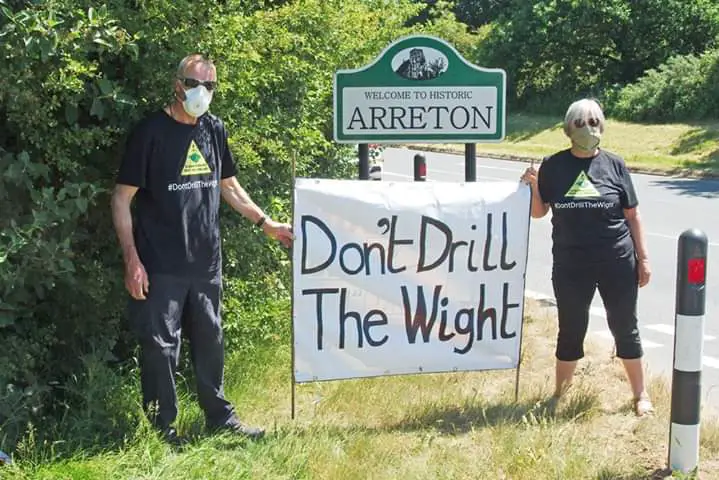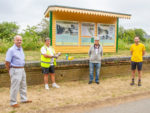News shared by Don’t Drill The Wight. In their own words. Ed
Isle of Wight campaigners are calling for an urgent rethink on the active public consultation for UKOG oil drilling on farm land outside of Arreton.
With only three weeks to go until the consultation deadline, the Isle of Wight council offices and libraries remain closed, public meetings are banned, and there can be no compulsory site meeting by members of the Isle of Wight Council Planning Committee.
The entire process is left to virtual meetings and social media – and yet will determine the future of acres of countryside at the heart of the Isle of Wight for twenty years or more.
Medland: An attack on our very democracy
Cllr John Medland (Freshwater South), a supporter of the Don’t Drill The Wight campaign, said,
“Given all these obstacles it is a wonder that any but the most familiar with the inner workings of the planning system will make any comment or objection.
“Forcing such a critical consultation into an exclusively virtual sphere, with no public meetings or documents to handle, is an attack on our very democracy.”
Lowthion: The Island is last place that should be planning to drill for oil
Vix Lowthion, the IW Green Party spokesperson, continued,
“The Isle of Wight is considered to be one of the most famous tourist locations on the planet. We are a designated UNESCO Biosphere due to its unique rich ecological pattern of landscapes and bio-diversity of species, with an internationally protected coastline and estuaries and much of our land declared as an ‘Area of Outstanding Natural Beauty’.
“In July 2019 the Isle of Wight Council declared a ‘Climate Emergency’. Only one year on, the Island is the last place that should be planning to drill for oil.”
Extend the consultation
Campaigners are urging the Isle of Wight Council to extend the consultation process into the autumn, to properly promote it through website and virtual channels, and to ensure that the usual statutory access routes to paper documents are protected.





